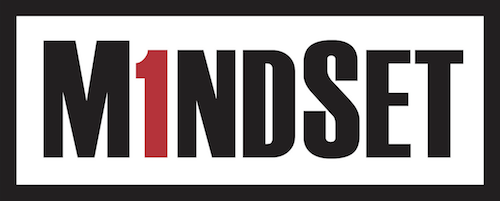We’ve been using our MindSet Survey with multiple clients and we have seen fascinating trend data – and some of it has big implications for leadership. Our uses 49 carefully crafted questions, supplemented by client specific queries, to provide cultural health indicators for our 14 key domains. These results let our clients get a detailed and useful look at existing cultural health patterns, while also being able to compare their cultural health to other companies.
Using this same comparative data we were able to see Five clear trends across company. While this data might not be new if you’ve followed our view of leadership and the essential elements for the creation and maintenance of a high functioning team, but even we have been surprised at the strength of some of the trends we’ve observed
Trend 1: Many employees are feeling the pressure of a heavy workload. This trend is striking across industries and all employee demographics, although it is most acute among salaried employees – not surprising as their compensation is fixed regardless of time and energy committed. Many organizations cut back during the recession and have been slow to hire as their confidence in the turnaround remains tepid. I suspect they run the risk of employee exhaustion if there is not some relief in the offing. By the way, this indication of excessive workload is NOT seen from just disenchanted and negative employees – it is seen almost as frequently from those employees who are otherwise very positive.
Trend 2: Well, MindSet’s 4th Principle of Leadership, Good staff have a right to work with good staff, seems to be fully alive and kicking! Even employees who have pride in their company and are happy with their jobs often indicate frustration about having to work with what they perceive to be chronically underperforming colleagues – and they clearly feel that their supervisors do a poor job of holding such colleagues to reasonable standards. Looking at the unequivocal survey data, we are increasing our emphasis in our MindSet training that good supervisors and teams just can’t allow the duds to slide – and if you do, you will pay a big price in team culture and functioning.
Trend 3: Many otherwise positive employees are not optimistic about their career advancement opportunities. We will continue to urge MindSet clients to be more creative in responding to this challenge, such as offering challenging career ladder opportunities within their system.
Trend 4: There are many positive trends in the data as well. For example, we are seeing solid indications that most employees enjoy their day-to-day work environment, believe their company operates at a high ethical standard, have a good degree of confidence in most of their coworkers, and feel fortunate to have the supervisor they do.
Trend 5: Pride – that is the factor I have started to look at first and last when examining the cultural health survey data for a client. Consistent with MindSet’s leadership model, it seems this factor is a huge predictor of an employee’s general feeling about his or her work setting. When pride is strong, we have the solid foundation from which we can start to build areas that may be weaker. When pride is absent, our intervention efforts are likely to be futile as a result of building on a weak foundation.
MindSet uses the term Cosmo for individuals who tie their egos to their title or profession, and the term Locals for individuals who tie their ego to the success or their team. Great cultures are maintained by a preponderance of Locals populating the team. Well, this tendency to be either a Cosmo or a Local is not entirely fixed. If the company is worthy of great pride, it will find more employees will conduct themselves as Locals; if the company is not worthy of pride, a much greater number of employees will function as Cosmos.
Quick Tip: Surveying employees reminds me of a practice that too few companies use:
Does your organization regularly conduct exit interviews? If so, that is good as some useful information can sometimes be obtained. But even more useful information can be gained by occasionally conducting stay interviews, i.e., interviews with Star employees who remain with the company to ask what it is that they most value – and any negative aspects of their work that might one day lead to their consideration of another opportunity. Just like one of the easiest ways to improve performance is to stop doing stupid things, it is every bit as important to make sure we continue to do smart things!
If you’re interested to see how your company is performing on these trends versus other companies or to identify new growth opportunities in your company consider our MindSet Survey!

Co-Founder of MindSet, LLC.

